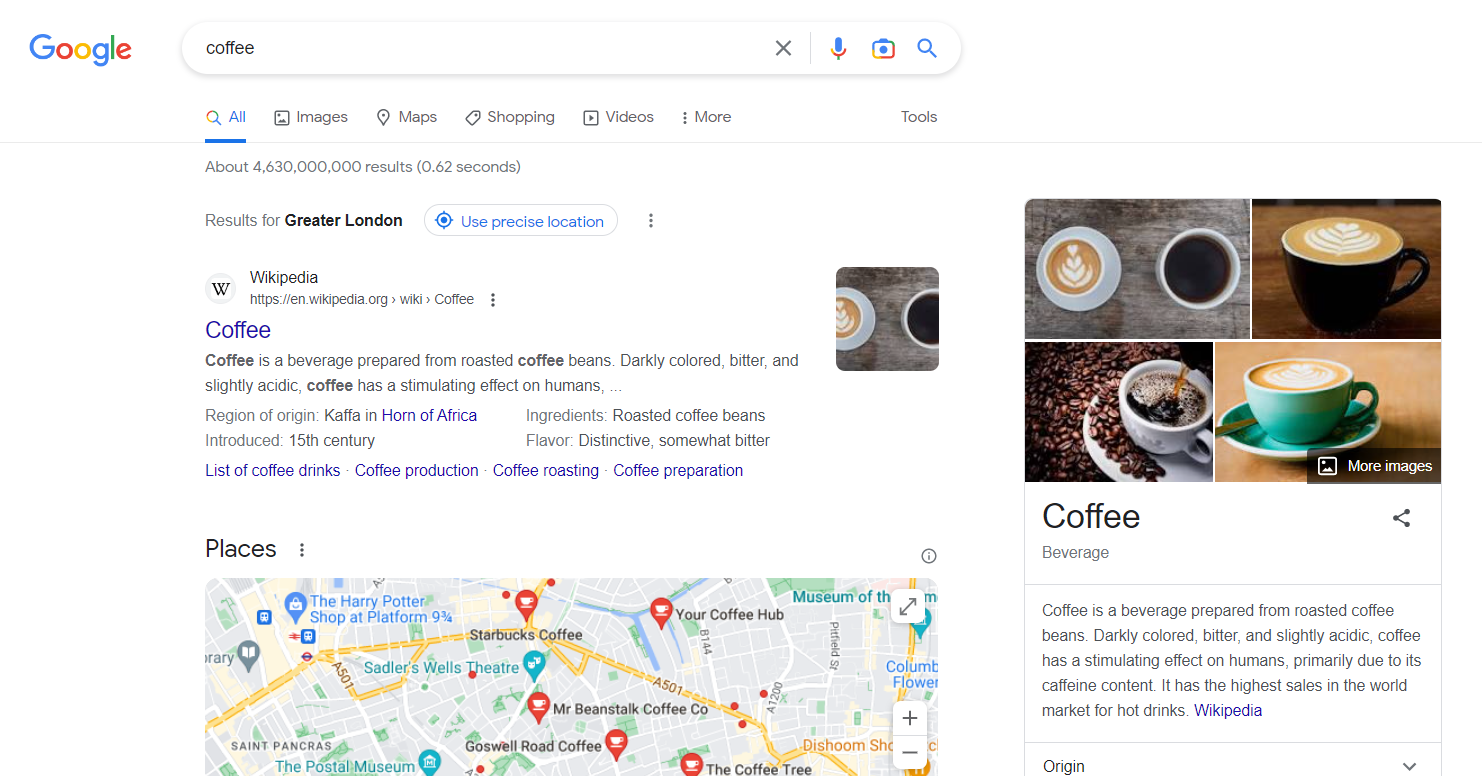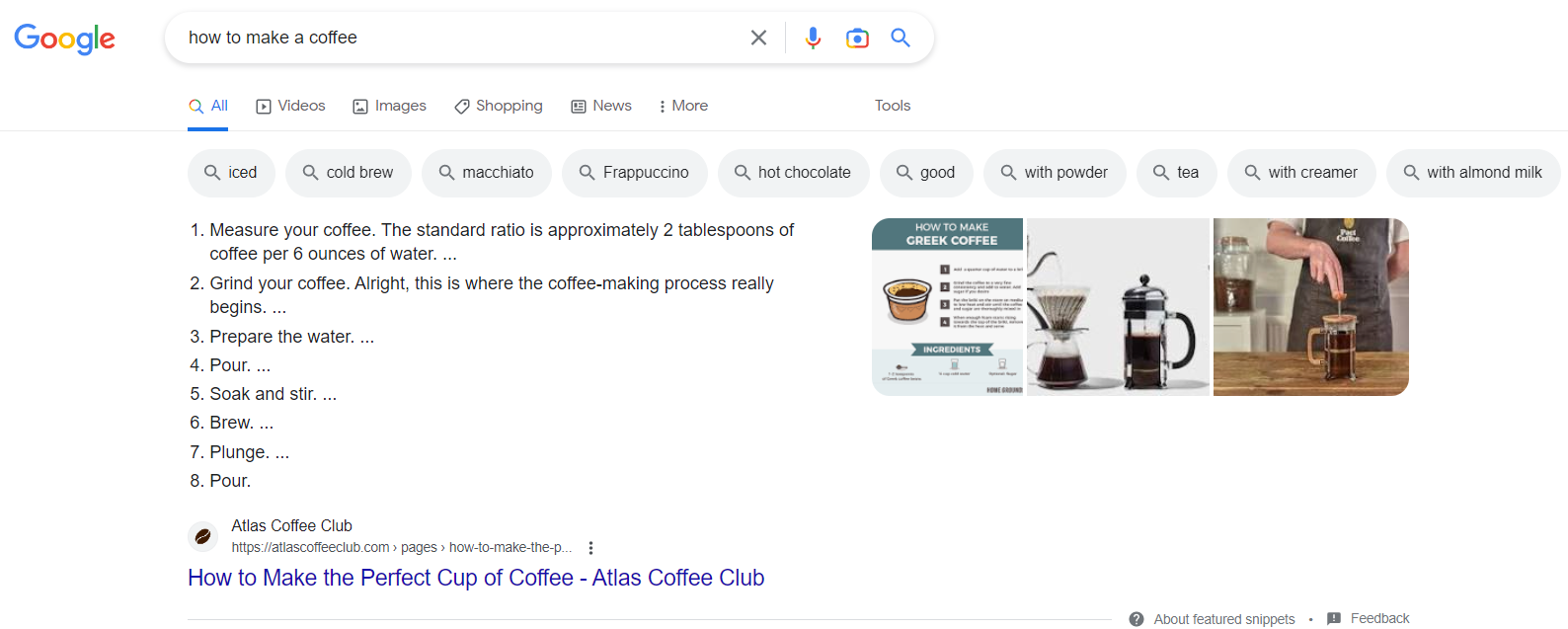

The Power of Keywords: A Quick-Win Guide for SEO Success
Written By Otilia Crizbasan | 15 May, 2023
Why keywords matter and how they can unlock your online potential
Crafting content without considering the power of keywords is like building a house without a foundation. No matter how much effort you put in, if people aren’t searching for the topics you’re writing about, your website won’t receive any search traffic.
If you’re not familiar with keywords yet, don’t worry. You’re about to learn most of it in just a few minutes with Luminr’s comprehensive guide.
Keep reading to learn more about the importance of keywords in the marketing landscape. Learn how to use them to drive online success for your business.
What are keywords?
Keywords (also known as “SEO keywords,” “keyphrases,” or “search queries”) are words or phrases that users type into search engines to find relevant content for their queries.

A keyword is any term used in a search engine, whether a single word or a long phrase. For example, “coffee” and “how to make a coffee” are both considered keywords. However, the SERP changes based on how specific the keyword is:


They are the main ideas or concepts that your content revolves around. Keywords can help you to create a more focused and targeted message for your readers. Using the right keywords on your website is essential for driving organic traffic and attracting the right audience.
Why are keywords important?
Have you ever written a blog post or created a webpage about a topic that you’re passionate about, but it just didn’t seem to get any traction? It’s a frustrating feeling and a common mistake for many website owners.
One reason is that there might not be any search volume for that particular topic. In other words, no one is actively searching for information on that subject. And if no one is searching for it, it’s unlikely that your page will receive any traffic from Google or other search engines.
And according to Ahref’s study, 90.63% of content gets no traffic from Google. That’s a staggering number and highlights just how important it is to do proper keyword research.
Using the right keywords can help you ensure that there is a search demand for whatever you want to write about.
Finding out about search demand involves identifying the popularity of specific keywords and topics people are searching for online. There are several methods to achieve this, including using Google Trends to monitor the search volume of specific terms, using keyword research tools or monitoring social media to identify emerging trends and topics.
By using these methods, you can gain insights into what topics are popular and optimise your content to improve your search engine rankings. And if your page ranks well in Google for its target keyword, you can enjoy a consistent stream of highly targeted online visitors.
10 important keyword types
Whether you are a beginner or an experienced marketer, understanding the different keyword types is crucial for effective keyword planning and strategy.
For a quick overview and to learn more about their importance, check out our list below:
- Seed: words or phrases that you can use as the starting point in a keyword research process to unlock more keywords. Example: “shoe”
- Informational: the intent of the searcher is to find information. They aren’t looking to buy anything. Example: “how to tie your shoelaces”
- Transactional: the searcher wants to buy a specific product/service. Example: “buy Nike Air Max”
- Long-tail keywords: These are longer and more specific keyword phrases consisting of three or more words. Example: “best running shoes for flat feet”
- Low-competition keywords: These are typically easier to rank for because fewer companies and websites are competing for high organic rankings with their SEO.
- Niche keywords: Clear and specific topics that appeal to relatively small, often specialised parts of a given market. Example: “orthopaedic shoes”
- Branded: Contains the company service or product name. Example: “Nike running shoes”
- Unbranded: Often a generic term and does contain the company service or product name. Example: “running shoes”
- Primary: The main topic of the page; the single keyword to optimise a page for. Example: “sport shoes” for a page on the topic
- Secondary: Any keyword closely related to the primary keyword that you’re targeting. Example: “shoe accessories” for a page on sports shoes
Qualities of a keyword
When conducting keyword research and selecting the right keywords for your content, there are several qualities to consider.
The main qualities of a keyword include:
- Search volume — the number of times a keyword is searched for in a given time frame, typically per month. A high search volume suggests that the keyword is popular among users and has the potential to attract a lot of traffic to a website.
- Competition — the level of competition for a particular keyword. High competition means that there are many websites competing for the same keyword, which can make it more difficult to rank.
- Cost-per-click — the amount an advertiser would pay for a click on an ad containing the keyword. The higher the CPC, the more valuable the keyword is perceived to be.
- Word count — the number of words in the keyword phrase. Short-tail keywords (1-2 words) are typically more general and have a higher search volume but are more competitive, while long-tail keywords (3 or more words) are more specific and have a lower search volume but are less competitive.
- Search Intent — This refers to the reason behind a user’s search query. Understanding search intent is important because it helps to create content that matches the user’s needs and expectations. Keywords can be categorised as informational, navigational, or transactional based on search intent.
Free & paid loved keyword research tools
Are you looking to boost your SEO game? Keyword research tools can help you in countless ways.
These great tools can assist you in:
- Generating useful keyword ideas
- Uncovering how many people are searching for a specific term
- Spotting trends or shifts in consumer habits
- Determining how much competition you’re facing to rank for a particular phrase.
The good news is there are plenty of fantastic options to gather all the vital information you need for your strategy. Here are eight well-loved keyword research tools (both free and paid) that are user-friendly and packed with valuable data.
Free keyword research tools:
- Google Keyword Planner: A popular tool for AdWords users, it provides keyword suggestions, search volume, and competition data. While its primary focus is on paid campaigns, it’s also useful for organic keyword research.
- Ubersuggest: Developed by Neil Patel, this tool offers keyword suggestions, search volume, and competition data. It also includes content ideas and backlink data.
- Keyword Surfer: A free Chrome extension that displays keyword data, including search volume and competition, directly in Google search results.
- AnswerThePublic: A visual keyword research tool that generates questions, prepositions, and comparisons related to your keyword. It helps you identify topics and long-tail keywords.
- Keyword.io: Offers a variety of keyword suggestions from different platforms such as Google, YouTube, Amazon, and more. The free version provides basic keyword data.
Paid keyword research tools:
- Ahrefs Keywords Explorer: A comprehensive keyword research tool that provides keyword suggestions, search volume, keyword difficulty, and more. It also offers a robust site explorer to analyse backlinks and organic search performance.
- SEMrush: A popular all-in-one marketing suite that includes keyword research, site auditing, and competitor analysis. The keyword magic tool provides extensive data on keywords, including search volume, competition, and keyword variations.
- Moz Keyword Explorer: A part of the Moz Pro suite, this tool offers keyword suggestions, search volume, keyword difficulty, and organic click-through rate (CTR) predictions. Moz also provides a suite of SEO tools, including site auditing and rank tracking.
- Long Tail Pro: A keyword research tool that specialises in generating long-tail keyword ideas for niche websites and blogs.
Final thoughts
Even if you have the most amazing content, no one will find it online if it doesn’t contain the keywords people are searching for. That’s why it’s so important to do keyword research and make sure you’re using the right ones.
You will not only reach a wider audience, but you’ll bring more targeted traffic to your website or blog. More traffic will ultimately lead to increased engagement, conversions, and revenue.
Now it’s time to take action on what you just learned. So go ahead and find keywords for your business. And start incorporating those keywords into your campaigns.
Get in touch with our team to discover how we can help you own page one.





